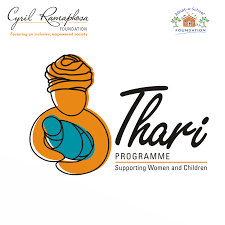
Introduction
South Africa continues to grapple with persistent challenges such as high youth unemployment, economic inequality, and underdevelopment in rural areas. In response, the government introduced the Thari Programme, a strategic initiative spearheaded by President Cyril Ramaphosa. This programme is designed to uplift underserved communities through sustainable development, job creation, and improved local economies.
What is the Thari Programme?
The Thari Programme is a government-led initiative focused on sustainable development, particularly in rural and economically marginalized regions of South Africa. Launched under the leadership of President Cyril Ramaphosa, the programme seeks to empower small businesses, boost agricultural productivity, and create long-term employment opportunities.
Key Objectives of the Thari Programme
- Promote environmentally sustainable economic growth
- Support small-scale farmers and emerging entrepreneurs
- Reduce inequality across regions
- Create job opportunities, especially for youth and women
- Improve rural infrastructure and expand access to skills development
Strategic Focus Areas of the Thari Programme
The Thari Programme targets several core sectors to maximize impact:
- Agriculture and Agro-processing: Enhancing productivity and profitability for small farmers
- Infrastructure Development: Building roads, bridges, and irrigation systems to support local economies
- Skills Development: Training youth and women in agricultural techniques and entrepreneurship
- Support for Small Enterprises: Providing financial and technical support to small and medium-sized businesses (SMEs)
Why the Thari Programme is Important
Addressing Socioeconomic Challenges
South Africa faces stark disparities between urban and rural regions. Youth unemployment rates remain alarmingly high, often exceeding 50%. The Thari Programme directly addresses these issues by targeting job creation and income generation in neglected communities.
Aligning with Global Development Goals
The Thari Programme is aligned with the United Nations Sustainable Development Goals (SDGs). It emphasizes poverty reduction, inclusive economic growth, and environmental sustainability. These priorities help South Africa fulfill its international development commitments while addressing domestic concerns.
Learning from Global Best Practices
Countries like Rwanda and Ethiopia have successfully transformed rural economies through targeted investment in agriculture and skills development. The Thari Programme draws on these lessons, adapting them to South Africa’s unique needs and context.

Implementation of the Thari Programme
Government Departments and Stakeholders
The programme is managed through collaboration among:
- The Department of Agriculture, supporting rural farming and agro-processing
- The Department of Trade and Industry, offering assistance to small businesses
- Local municipalities, ensuring services reach communities
- Private sector partners and NGOs, contributing resources and expertise
Notable Projects Under the Thari Programme
- Construction of rural road networks to improve market access
- Installation of irrigation systems to boost farming efficiency
- Distribution of startup grants to small-scale farmers and entrepreneurs
- Skills training programmes focused on youth and women in rural areas
Funding and Resource Management
Funding comes from national government budgets, international development partners, and private investors. Transparent governance and strict monitoring systems are in place to ensure accountability and effective resource use.
Measurable Impact of the Thari Programme
Economic Benefits
- Increased crop yields and market access for rural farmers
- Growth in small business activity and employment in rural areas
- Enhanced infrastructure supporting local trade and logistics
Social Development Outcomes
- Thousands of jobs created for youth and women
- Rising income levels in target communities
- Improved access to essential services and skills training
Challenges and Areas for Improvement
While the Thari Programme has made meaningful progress, some obstacles remain:
- Delays in project implementation due to logistical and funding issues
- Limited capacity in some local municipalities
- Need for better community engagement and inter-agency coordination
Expert Opinions on the Thari Programme
Policy analysts and economic experts view the Thari Programme as a transformative model for inclusive development. They emphasize the importance of consistent implementation, measurable goals, and enhanced partnerships between the public and private sectors.
International Perspective
Global organizations such as the World Bank and the UN Development Programme highlight the Thari Programme as a promising example of sustainable rural development. They stress the importance of local participation and ongoing investment in human capital.
How South Africans Can Support the Thari Programme
Support Local Businesses
Consumers can strengthen the impact of the programme by purchasing products from local farmers and small enterprises. This helps build self-sustaining community economies.
Collaborate with Government Projects
Private companies can contribute through investment, mentorship, and training initiatives. Civil society organisations can assist in outreach, education, and implementation efforts.
Take Advantage of Skills Development
Young people, especially in rural areas, are encouraged to participate in training opportunities offered through the Thari Programme. These skills can significantly improve employment prospects and business success.
Conclusion
The Thari Programme stands as a powerful example of how focused government action can address poverty, unemployment, and inequality in South Africa. By investing in rural infrastructure, agriculture, and skills development, the programme aims to create lasting economic opportunities and improve the quality of life for millions.
The success of the Thari Programme depends on continued collaboration between government, communities, and the private sector. With consistent effort and shared commitment, this initiative has the potential to shape a more inclusive and prosperous future for all South Africans.
Leave a Reply